Inquiring Minds
This innovative UH program cultivates undergraduate researchers from all academic disciplines.
By Peter Simek
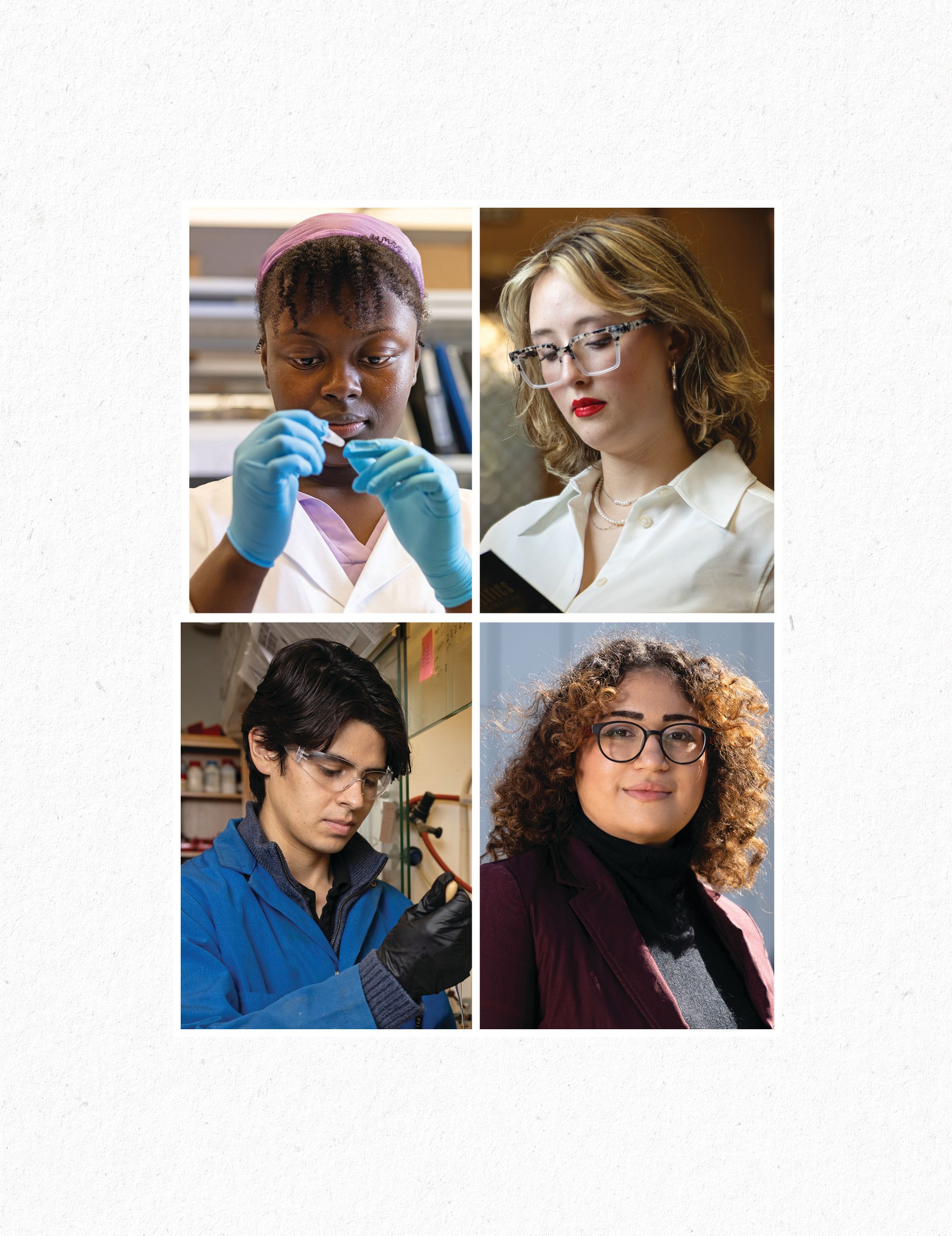
On June 17, 2012, a press release crossed the wire with a science story destined to go viral. A new study examining biological samples taken from hotel rooms throughout the Houston area attempted to locate which surfaces were most contaminated with bacteria. The surprising reveal: the dirtiest surfaces in hotels aren’t in the bathroom, on the door handles or around the bed. Rather, the most likely spreader of disease in your hotel is the television remote.
The story packed a powerful blend of familiarity, fear and serious ick, and it was picked up by dozens of news outlets. The study’s lead researcher was invited to appear on “The Ellen DeGeneres Show.” Perhaps as surprising as its findings: that researcher was Katie Kirsch, an undergraduate student at the University of Houston who had conceived, conducted and published the study through UH’s innovative SURF program.
“For undergraduates, SURF was the first time we had a full-time, major opportunity for students.”
SURF, which stands for Summer Undergraduate Research Fellowship, launched during the 2005-2006 academic year, and it allows students entering their sophomore, junior or senior years the opportunity to conduct independent research alongside an academic mentor. The program has several distinguishing features. Students work on real research projects that often result — as in the case of the bacteria-covered TV remotes — in significant findings. After Kirsch’s research was released, hotels said they would address how they approach sanitizing these devices.
SURF also accepts students from all of UH’s undergraduate colleges, which establishes a unique, cross-disciplinary research atmosphere on campus each summer. This combination of active research across disciplines led by undergraduates mentored by professors has produced important results. SURF projects have helped UH undergraduates win Fulbright scholarships, contribute to groundbreaking scientific breakthroughs and earn prestigious internships on Capitol Hill.
INDEPENDENT RESEARCH, BUOYED BY COMMUNITY
Since its launch, Stuart Long, Moores Professor and associate dean for undergraduate research and the Honors College, has overseen the SURF program. Long is considered a UH institution unto himself. He began teaching at the University after receiving his Ph.D. in electrical engineering from Harvard in 1974, and this semester marks his 50th year with UH. Long said the vision from the outset was to create research opportunities for undergraduate students, distinguished by their hands-on collaboration with faculty.
“For undergraduates, SURF was the first time we had a full- time, major opportunity for students,” he says. “It’s not one of these things where a student gets involved in undergraduate research with a class of 300 students. Instead, it is a one-on-one interaction between the faculty member and the student.”
Each spring semester, students entering their sophomore, junior or senior year the following fall can submit a proposal for a research project they would like to pursue that summer. Each student must secure a faculty mentor, and abstract proposals are reviewed by faculty. Once approved, they are on their own. Students spend 10 weeks during the summer on the UH campus conducting research as if they were graduate students or already minted Ph.Ds.
Although the research is independent, the program tries to foster community among SURF participants through brown- bag lunches, research presentations and faculty discussions. When SURF launched, the program had 18 students. It has since grown to about 70-90 students per year, including both Honors and non-Honors College students. In 2023, student participants represented seven colleges.
It’s that cross-disciplinary approach Long believes is the special ingredient driving SURF’s success.
“It is not just for students in applied electromagnetics or students in electrical engineering or students in engineering and science. We made concerted efforts to open this to the whole campus,” Long says.
TANGIBLE OUTCOMES, VERIFIABLE BENEFITS
The results speak for themselves.
In 2008, history major Ronnie Turner investigated the personal files of a politically active director of the YMCA in Houston’s Third Ward, revealing new insight into the history of integration in Houston. That work was eventually featured on the television news interview show “Dan Rather Reports.” In 2022, biology major Gabrille Kostecki researched the development of an effective anti-fentanyl vaccine, as well as a SARS-CoV-2 vaccine against new variants. She would go on to earn a Goldwater Scholarship and special recognition from Texas Gov. Greg Abbott. In 2023, political science major David Paul Hilton looked at the impact of sanctions on bilateral trade between Russia and nearby non-sanctioned countries. He went on to study in Uzbekistan on a Fulbright grant.
“English major, history major, psychology major or a business major — we’ve really worked to get a diverse range of students involved,” Long says. “It really gets them much more competitive for what we call major awards that get you entry into grad school or med school or whatever their next goals are.”
The SURF program helps to uniquely position UH undergrads for some of the most prestigious awards, he adds, because students come out of their 10 weeks with their names on academic research projects they led themselves.
“Those go a long way when you’re looking at getting into a good grad school or applying for a prestigious major award. We know if we are trying to groom these students for Fulbright applications or Goldwater Scholarships, they need to have these experiences to make them competitive.”
Long points out that many of UH’s students are the first in their families to go to college. For these students, merely attending UH may have seemed like an unattainable dream. Conducting academic research that could lead to a Fulbright scholarship ... that was unimaginable.
Long also knows firsthand the effect a strong mentor can have on the life trajectory of an undergraduate student. His 50 years at the University have been driven by his numerous experiences watching these kinds of student transformations. But he can also remember when he was an undergraduate who found a mentor who helped shape his own life’s path.
“When I was an undergraduate at Rice, I got involved working with a particular faculty member named Lionel Davis,” he says. “And he got me involved in some work with some new kinds of antennas that were being developed. And I didn’t know it at the time, but looking back, that’s what my research has been for the last 50 years.”
As the 2024 SURF application season kicks off, we look back at four of the notable research projects conducted last summer at UH.

“I learned how to design experiments, how to write papers and how to apply for grants.”
-Funmi Babajide
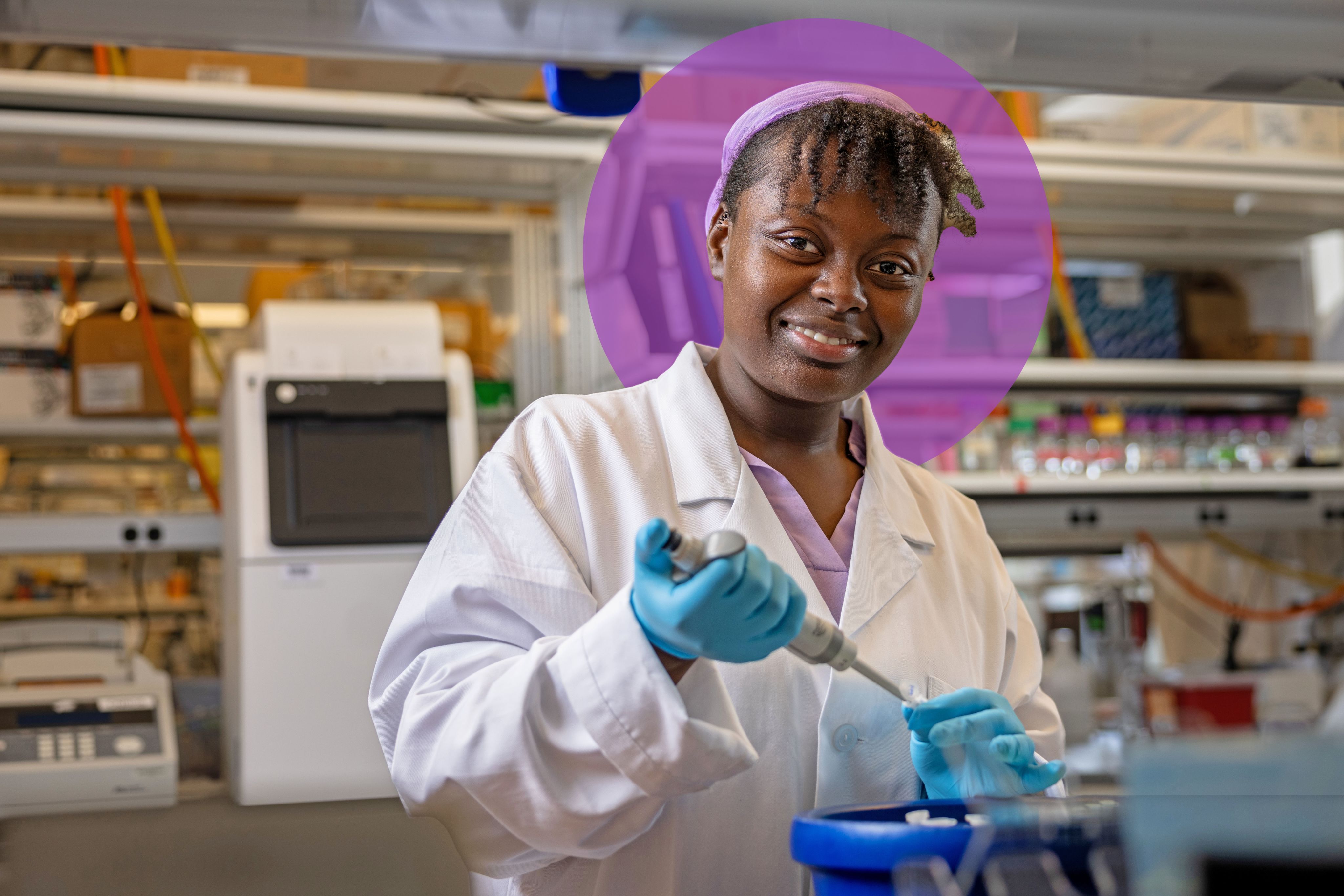
“I learned how to design experiments, how to write papers and how to apply for grants.”
-Funmi Babajide

Funmi Babajide
BIOLOGY
Funmi Babajide first began working with her SURF program mentor, Tasneem Bawa-Khalfe, associate professor of biology and biochemistry, when she was chosen for the UH Pharmacological and Pharmaceutical Sciences Cougars in Cancer Research internship. That experience evolved into research she proposed for a SURF project. Babajide studied the impact of a particular strain of protein — a small ubiquitin-like modifier — on breast cancer development and breast cancer progression.
It was a subject she admits she didn’t know much about when Bawa-Khalfe first directed her toward it. But her research was part of broader UH research into breast cancer treatments that eventually isolated a protein that could prove a potential drug target for breast cancer treatment.
Funmi Babajide says her SURF mentor has encouraged her to take advantage of opportunities such as applying for grants and presenting her research at conferences.
Funmi Babajide says her SURF mentor has encouraged her to take advantage of opportunities such as applying for grants and presenting her research at conferences.
Babajide presented her research at the Cougars in Cancer Research Symposium, the American Association of Cancer Research Annual Meeting and the Annual Biomedical Research Conference for Minoritized Scientists. Babajide cites the core role her mentor has played in guiding her toward some of these opportunities, citing opportunities like SURF for enabling her to dive into the hard science and research in her field.
“I love Dr. Bawa-Khalfe,” she says. “She is the type to push me to go to things and do things and even apply for things I would never have applied for. I learned how to design experiments, how to write papers and how to apply for grants.”

“I’m also really interested in the idea of art and writing as a means of healing and healing yourself.”
-Alissa Boxleitner
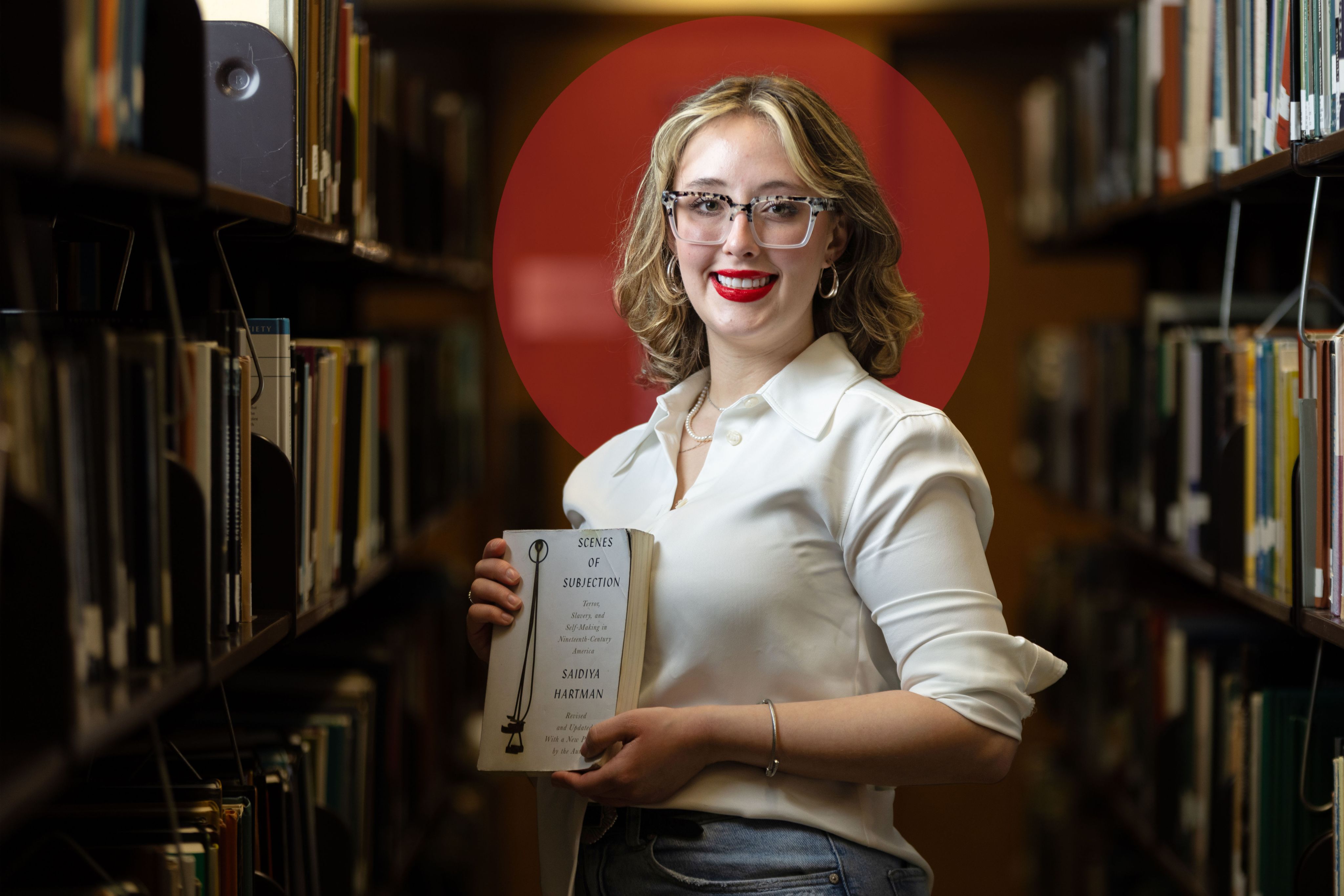
“I’m also really interested in the idea of art and writing as a means of healing and healing yourself.”
-Alissa Boxleitner

Alissa Boxleitner
ENGLISH LITERATURE
By the time Alissa Boxleitner transferred to UH before her junior year, she had already proven herself as a precocious and imaginative researcher. At Lone Star College, Boxleitner published award-winning research on hypersexualization at middle school dances and was invited to present at the Johns Hopkins’ Richard Macksey Humanities Symposium. At UH, she decided to pursue English literature and found a mentor in Haylee Harrell, assistant professor of Black studies.
Harrell, who sponsored Boxleitner for the SURF program, is the kind of mentor Long had in mind when he established the program’s format. She has helped Boxleitner receive a Provost Undergraduate Research Scholarship and invited her to join a graduate-level English class.
Alissa Boxleitner's research examines artistic representations of the body in an era of increasing acknowledgment of incidents of sexual violence.
Alissa Boxleitner's research examines artistic representations of the body in an era of increasing acknowledgment of incidents of sexual violence.
For her SURF proposal, Boxleitner wanted to expand on themes central to her previous undergraduate research. Looking at the work of the queer Chicano musical artist Myriam Gurba and her memoir on gender violence, “Mean,” as well as the body art of Cuban American performer and sculptor Ana Mendieta, Boxleitner set out to look at how the body is represented in art at a time when ever-present threats of sexual violence have become increasingly visible and acknowledged.
“I’m also really interested in the idea of art and writing as a means of healing and healing yourself,” Boxleitner told FORWARD, the English department newsletter. “I love the memoir as genre. That’s the kind of stuff I’m drawn to — how we deal with ourselves and put ourselves back together after surviving gender-based violence.”

“Being in an environment, where people around you — like grad students, professors — they know so much more than you. Take advantage of that.”
-Julio Cacho-Bravo
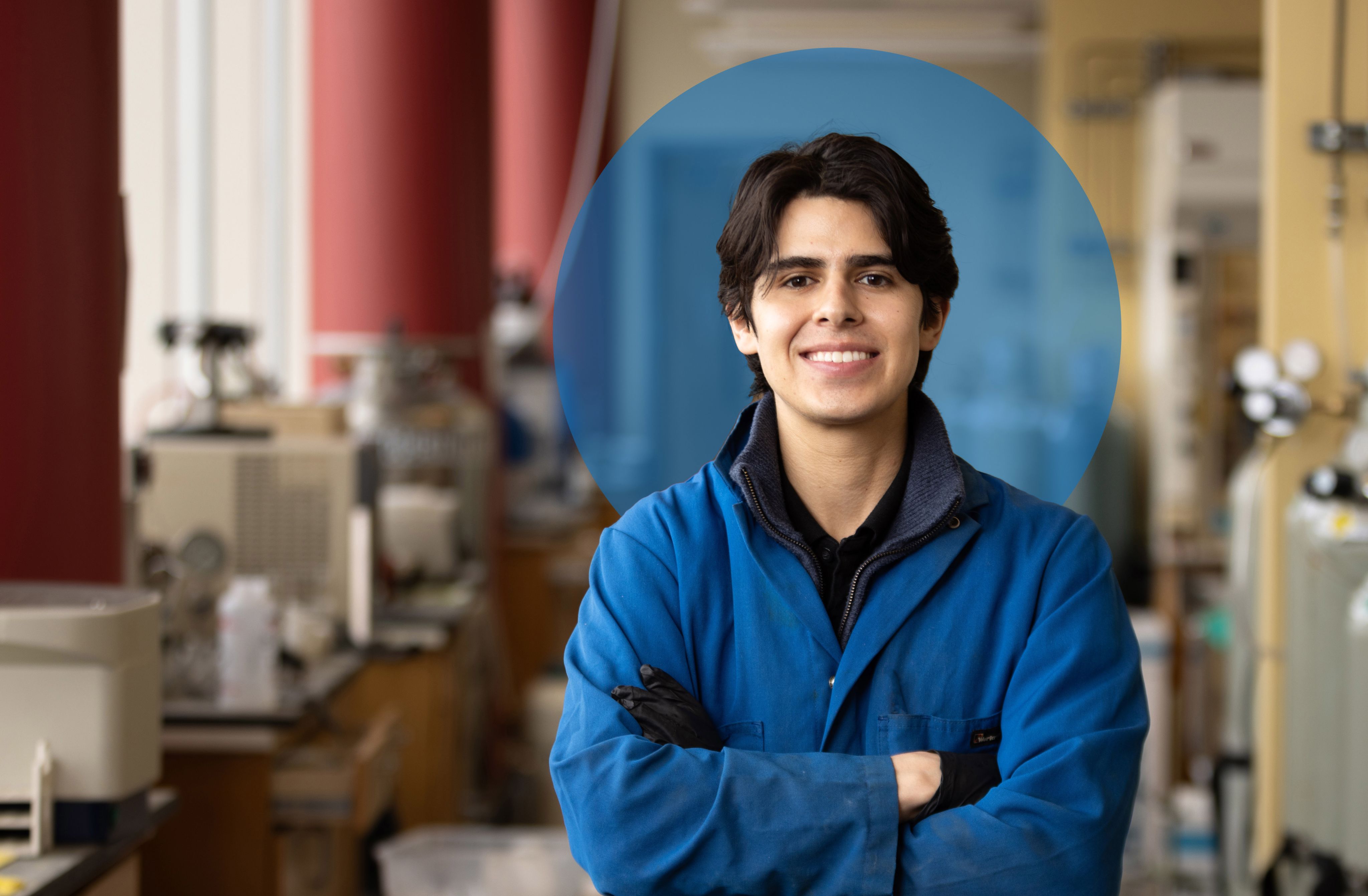
“Being in an environment, where people around you — like grad students, professors — they know so much more than you. Take advantage of that.”
-Julio Cacho-Bravo

Julio Cacho-Bravo
CHEMISTRY
Julio Cacho-Bravo has been working with his mentor, Jeremy May, professor of chemistry, since 2021 when he reached out to express his interest in pursuing a doctoral degree in chemistry instead of applying to medical school. For Cacho-Bravo, it was his work in organic chemistry that lit the fire and the desire to do more hands-on research in the cures doctors could use to treat their patients.
For his SURF research, he worked with May to learn how to complete the synthesis of mutanobactins A and B. These molecules have been found to have properties that can serve as effective treatments for Alzheimer’s and Parkinson’s disease.
Julio Cacho-Bravo's involvement in the SURF program allowed him to spend 10 weeks in the lab learning skills he'll need to continue pursuing his advanced chemistry studies.
Julio Cacho-Bravo's involvement in the SURF program allowed him to spend 10 weeks in the lab learning skills he'll need to continue pursuing his advanced chemistry studies.
The project afforded Cacho-Bravo the opportunity to spend 10 weeks acquiring the valuable lab skills and techniques required to synthesize the molecules. For Cacho-Bravo, the combination of learning these hands-on lab skills and engaging with the SURF program community confirmed his desire to continue pursuing advanced studies in chemistry.
“My mentor guided me through the process of working with compounds like these,” Cacho-Bravo says in a UH Honors College video reflecting on his SURF experience. “Being in an environment, where people around you — like grad students, professors — they know so much more than you. Take advantage of that.”

“Through relationships and community, we can all contribute to create a better space for us to inhabit and thrive in.”
-Gabriela Hamdieh
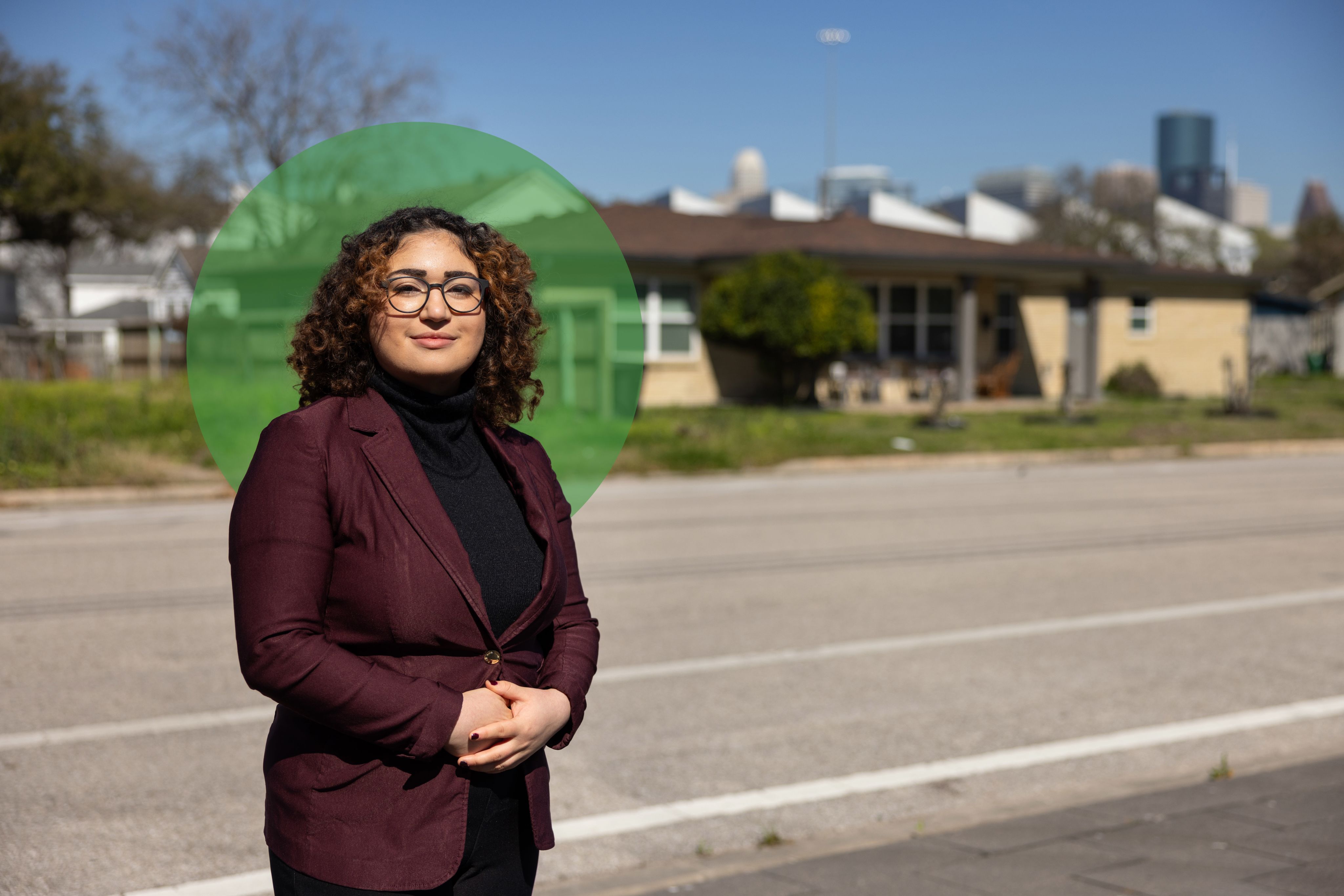
“Through relationships and community, we can all contribute to create a better space for us to inhabit and thrive in.”
-Gabriela Hamdieh

Gabriela Hamdieh
PUBLIC POLICY
Under the guidance of Sarah Munawar, the Elizabeth D. Rockwell Visiting Professor on Ethics and Leadership, Gabriela Hamdieh dedicated her 10 weeks during SURF to assessing Houston’s housing issues. She documented housing displacement and discrimination experienced by racialized and migrant communities. The work built on Hamdieh’s active roles in justice issues both on and off campus, offering a critical lens through which to view the challenges confronting one of America’s most dynamic and diverse cities.
The project has opened many doors for Hamdieh.
Since participating in SURF, Hamdieh has begun working toward a Nonprofit Leadership Alliance certification, engaged in the Houston Scholars program and served on the Undergraduate Student Advisory Council at the Hobby School of Public Affairs. Outside of campus, she was a Civic Houston intern in the City of Houston Mayor’s Office of Economic Development and a member of the Next Generations Academy. Most recently, she was selected as a Leland Fellow, providing her a paid, full-time internship on Capitol Hill in Washington, D.C.













